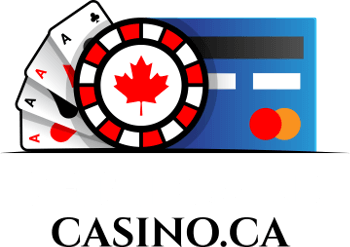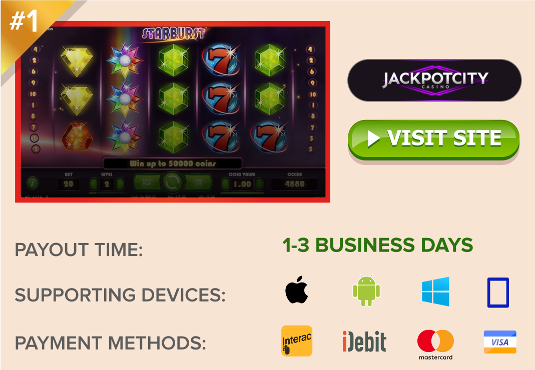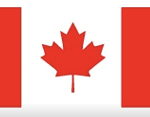Double Up 21 Game Rules and Guidance
How to play Double Up Blackjack, an original game with a rule twist that can double the payout for great pat hands.
 Double Up Blackjack is one of the more interesting variants I’ve come across in recent years. It was introduced by Nevada-based manufacturing company, Score Gaming, and made its trial debut at the Grosvenor Casino in Durham, England in 2015. I’m actually looking forward to the day this game makes its way into the online blackjack realm. For now, it is only available in select casinos in the UK and North America.
Double Up Blackjack is one of the more interesting variants I’ve come across in recent years. It was introduced by Nevada-based manufacturing company, Score Gaming, and made its trial debut at the Grosvenor Casino in Durham, England in 2015. I’m actually looking forward to the day this game makes its way into the online blackjack realm. For now, it is only available in select casinos in the UK and North America.
On the surface, Double Up 21 is like any other standard blackjack game, except that it comes with one additional rule. When players receive their hands, they have all the usual options, Stand, Hit, Double Down, and Split, plus the unique option to “Double Up”. Like Doubling Down, players must place a second wager on the hand. However, if you choose to Double Up, you cannot take any additional cards. You must stand immediately on the original 2-card total. Let’s take a closer look…
How to Play Double Up Blackjack
For the most part, this is traditional blackjack with the added Double Up option. To ensure the house gets its edge, there are a few other modifications to the rules. Fortunately, they weren’t too stingy about it, leaving players with a surprisingly generous house edge of 0.32% (RTP 99.68%).
Double Up: A player can double up on any first two cards except blackjack, including after a split, even if splitting Aces. to double up, the player will place a second wager of any eligible size, not below the table minimum, nor exceeding the original wager. The hand will stand once doubled. You cannot take any additional cards. A winning double-up hand pays 1 to 1 on the original bet, and 1 to 1 on the double-up. If the player hand ties the dealer, the original wager will push, but the double up is lost.
End 16: This is the rule casinos utilize to keep the edge in their favor. There is usually some confusion over how this rule works, so I’ll quote the game’s creator directly:
“END 16 – If the dealer has a total of 16 (HARD or SOFT) the game is OVER, all totals of 21 are paid at 1:1 and all non-busted hands are PUSHED, including any DOUBLE~UP.”
Note the wording, “all totals of 21 are paid at 1:1”. This means that even a player Blackjack will only win 1:1 against Dealer 16. In all other instances, a player blackjack will pay the standard 3:2.
If you’re still unsure, you may wish to observe the original Double Up 21 Rule Card from Score Gaming.
In addition to the rules detailed above, the following standards apply:
Specific Rules of Play
- Decks: 6
- Soft 17: Dealer Hits
- Doubling: Yes, on any 2
- Splitting: Yes, up to 3x
- Double after Split: Yes
- Double Up after Split: Yes
- Resplit Aces: No
- Draw to Split Aces: No
- Surrender: No
- Dealer Checks for Blackjack: Yes
- Player-Dealer Tie: Original bet pushes, Double Up loses
- End 16: Any Dealer 16 ends the game; pushes against all but 21
- Blackjack Pays: 3 to 2 (1:1 against Dealer 16)
- Double Up Pays: 1:1 for Win, Loses Ties
Bonus 16 Side Bet
The Bonus 16 is an optional side bet that pays off only if the player stands on a total of 16. In a traditional game, no one likes to stand on 16, but at the same time, the risk of hitting such a total can be scarier than standing on it. This side bet eliminates that trepidation. Unfortunately, it also comes with a rather unsavory house edge of nearly 7% or 15%, depending on which paytable is on the menu.
The more cards that are used to make up the 16 total, the higher the payout becomes. A two-card total of 16 is worth a 3:1 or 4:1 payout, scaling up to 100:1 for a total of 16 with six or more cards. See the Pay Table 1 and Pay Table 2 segments below for the full payout schedule and corresponding house edge.
| Player’s Hand Total is… | Pay Table 1 | Pay Table 2 |
| 16 in 6+ Cards | 100:1 | 100:1 |
| 16 in 5 Cards | 50:1 | 50:1 |
| 16 in 4 Cards | 10:1 | 10:1 |
| 16 in 3 Cards | 5:1 | 5:1 |
| 16 in 2 Cards | 3:1 | 4:1 |
| House Edge | 14.64% | 6.94% |
Strategy for Double Up 21
Knowing when to double your bets, up or down, is the key to maximizing your wins in Double Up Blackjack. When the correct actions are taken, the math behind this game puts the edge right at about 0.32%, equating to a player return of 99.68%. It’s not often you find a land-based blackjack game with rules this good, but you must precisely follow the proper strategy to achieve that RTP.
This strategy is divided up into three charts – one for Hard Hands (no 11-point Ace), another for Soft Hands (with 11-point Ace), and one more for Paired Hands (capable of being split). Please choose the correct chart for your current hand, then follow the ensuing directives.
How to Decide a Player’s Hard Hand
This chart applies to any hard total of two or more cards. If you cannot Double Up when directed, Stand instead.
| Hard Total | Correction action based on Dealer’s Up-Card |
| 4-8 | Hit |
| 9 | Double Down against 4-5, otherwise Hit |
| 10 | Double Down against 2-8, otherwise Hit |
| 11 | Double Down |
| 12 | Stand against 4-6, otherwise Hit |
| 13-16 | Stand against 2-6, otherwise Hit |
| 17 | Stand |
| 18 | Double Up against 5 or 7, otherwise Stand |
| 19 | Double Up against 2-8, Stand |
| 20 | Double Up |
| 21 | Stand |
How to Decide a Player’s Soft Hand
This chart applies to any soft total (a hand that contains an 11-point Ace) of two or more cards. If you cannot Double Up when directed, Stand instead.
| Soft Total | Correction action based on Dealer’s Up-Card |
| 12-13 | Hit |
| 14-16 | Double Down against 5, otherwise Hit |
| 17 | Double Down against 4-6, otherwise Hit |
| 18 | Double Down against 4-6, Double Up on 7, Hit on 9-A, otherwise Stand |
| 19 | Double Up against 2-8, Stand |
| 19 | Double Up |
| 20-21 | Stand |
How to Decide a Player’s Paired Hand
This final chart will teach you how to play Double Up Blackjack when presented with an opportunity to split pairs. If for any reason you cannot split a hand you’ve been directed to split (i.e. you have already hit the maximum number of splits per hand), please refer to the hard/soft hand charts above for further direction. If you cannot Double Up when directed, Stand instead.
| Pairs | Correction action based on Dealer’s Up-Card |
| 2-2 | Split against 3-7, otherwise Hit |
| 3-3 | Split against 4-7, otherwise Hit |
| 4-4 | Hit |
| 5-5 | Double Down against 2-8, otherwise Hit |
| 6-6 | Split against 3-6, otherwise Hit |
| 7-7 | Split against 2-7, otherwise Hit |
| 8-8 | Split against 2-9, otherwise Hit |
| 9-9 | Split against 2-9, otherwise Stand |
| 10-10 | Double Up |
| A-A | Split |
 Jackpotcity.com is our editorial pick for your gaming needs. Currently offering an entire suite of casino games, as well as a wide range of Canadian deposit options, JackPotCity truly offers world-class gaming.
Jackpotcity.com is our editorial pick for your gaming needs. Currently offering an entire suite of casino games, as well as a wide range of Canadian deposit options, JackPotCity truly offers world-class gaming.





